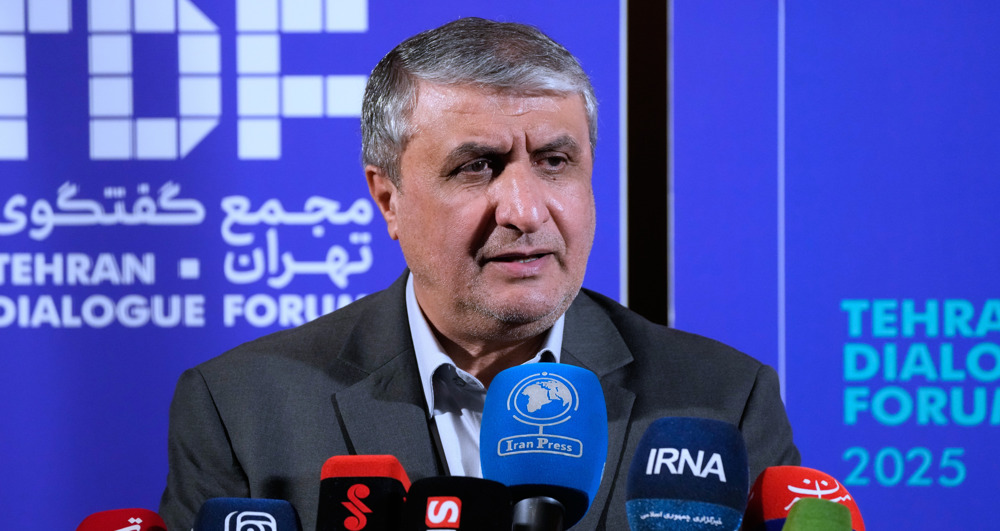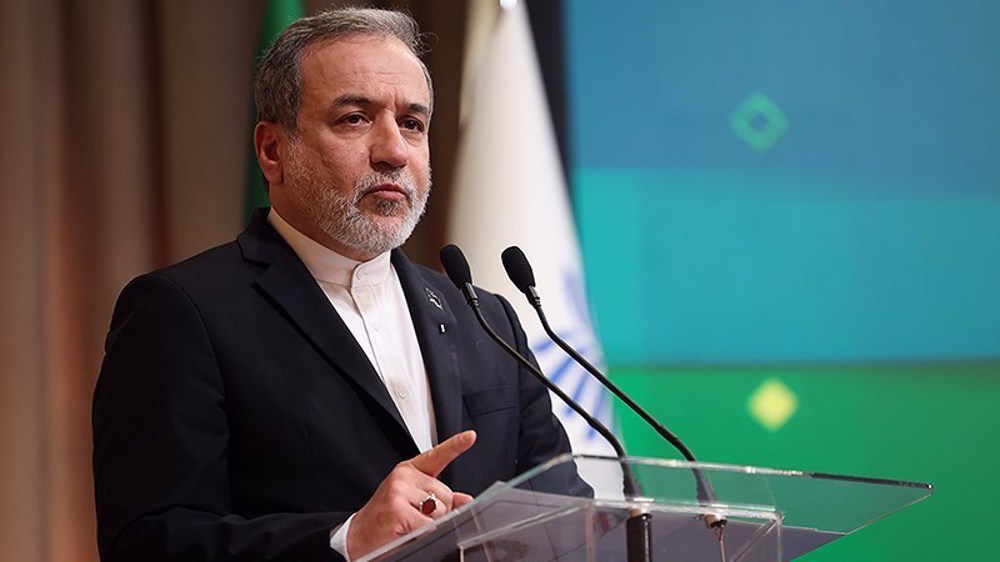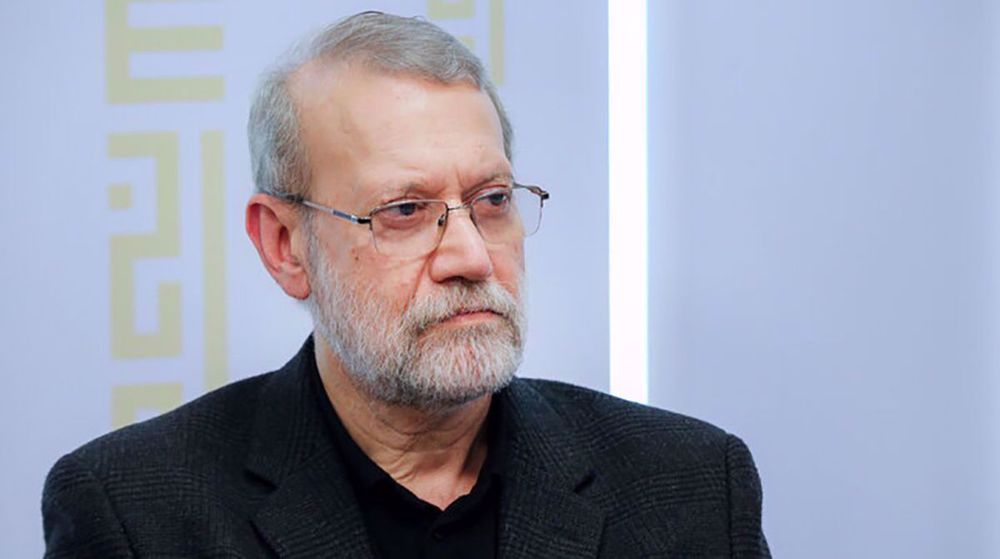US pullout from nuclear deal jeopardizes regional, global security: Iran
Head of the Atomic Energy Organization of Iran (AEOI) Ali Akbar Salehi says the United States' withdrawal from a 2015 nuclear deal with the Islamic Republic will have serious negative effects on the regional and international peace and security.
"The unilateral US move to withdraw from this agreement will have negative impacts on regional and international peace and security," Salehi said in an address to the 62nd General Conference of the International Atomic Energy Agency (IAEA) in Vienna on Monday.
He added that the nuclear agreement, officially known as the Joint Comprehensive Plan of Action (JCPOA), was reached between Iran and the P5+1 group of countries through a difficult procedure.
Iran's nuclear chief emphasized that Washington decided to pull out of the deal in May "although the IAEA has verified the Islamic Republic of Iran's compliance with the agreement on 12 consecutive occasions," adding that the US was never fully committed to the contents of the nuclear accord under both the former administration and its successor.
US President Donald Trump announced in May that Washington was pulling out of the JCPOA, which lifted nuclear-related sanctions against Tehran in exchange for restrictions on Iran's nuclear program.
The US administration reintroduced the previous sanctions while imposing new ones on the Islamic Republic. It also introduced punitive measures — known as secondary sanctions — against third countries doing business with Iran.
A first round of American sanctions took effect in August, targeting Iran's access to the US dollar, metals trading, coal, industrial software, and auto sector. A second round, forthcoming on November 4, will be targeting Iran’s oil sales and its Central Bank.
Despite Washington's withdrawal, Iran has not left the deal yet, but stressed that the remaining signatories to the agreement now had to work to offset the negative impacts of the US pullout for Iran if they wanted Tehran to remain in it.
Since the JCPOA Implementation Day on January 16, 2016, the IAEA has been monitoring Iran’s compliance with its nuclear-related commitments under the nuclear deal and has consistently verified the Islamic Republic’s compliance.
In his opening address to the IAEA’s 62nd General Conference, the agency's Director General Yukiya Amano reaffirmed that Iran is in compliance with the nuclear agreement.
“Iran is implementing its nuclear-related commitments under the JCPOA," Amano added.
In his introductory statement to the IAEA's Board of Governors in Vienna on September 10, Amano said Iran is living up to all its commitments under the 2015 nuclear deal.
Elsewhere in his remarks, Salehi said Washington’s unilateral pullout from the nuclear agreement is a blatant breach of the UN Security Council Resolution 2231, which endorses the JCPOA, adding that the US move has imperiled the fate of the deal, which was a "valuable and unique achievement of diplomacy."
The AEOI head emphasized that international reaction to the US illegal move has cast serious doubts on the rationality and credibility of Washington's policies.
Iran's Foreign Minister Mohammad Javad Zarif said earlier this month that all members of the international community need to stand up to the US law-breaking behavior or pay a high price after Washington's unilateral withdrawal from the JCPOA.
Zarif said European countries should take action and be prepared to pay the costs to be able to reap benefits from the nuclear deal, adding, "We have already announced that in addition to declaring their political commitment, it is time for the Europeans to act."
His remarks came a day after European Union's foreign policy chief, Federica Mogherini, said the 28-nation bloc would continue its work to preserve the multilateral nuclear agreement.
"Our work continues with all the member states and with other partners in the world to make sure that Iranians and Iranian citizens can benefit from the economic relations not only with the European Union's member states, but also others in the world," the senior EU official pointed out.
Read more:
- Iran president urges faster, more transparent steps to save JCPOA
- Europeans must bear expenses for long-term interests: Iran FM
- Russia, China say they will keep their commitment to Iran nuclear deal
- Russia 'deeply disappointed' by unilateral US sanctions on Iran: Foreign Ministry
Salehi meets with ROSATOM chief
Iran's nuclear chief also on Monday met with the Director General of Russia's State Atomic Energy Corporation, ROSATOM, Alexey Likhachev, on the sidelines of the IAEA's annual meeting.

During the meeting, Salehi hailed increasing cooperation between Iran and Russia on the peaceful use of nuclear energy.
He said the AEOI is keen to further boost cooperation with its Russian counterpart in the field of nuclear energy research and development.
Likhachev, for his part, said his country welcomes the strengthening of cooperation with Iran in all fields related to nuclear energy.
Read more:
Araghchi briefs foreign ministers of Turkey, Egypt and S. Arabia on US talks
JD Vance’s Caucasus trip deepens concerns over sovereignty, security and US meddling
VIDEO | Press TV's news headlines
Thousands rally in Australia against Israeli president's visit as police use pepper spray
Child among four killed as Israel attacks southern Lebanon in ceasefire breach
Russia vows ‘all possible assistance’ to Cuba as US squeezes oil supplies
Hezbollah leader: Israel‑US aggression is Lebanon’s main challenge
Muslim nations condemn Israel’s new West Bank settlement laws












 This makes it easy to access the Press TV website
This makes it easy to access the Press TV website